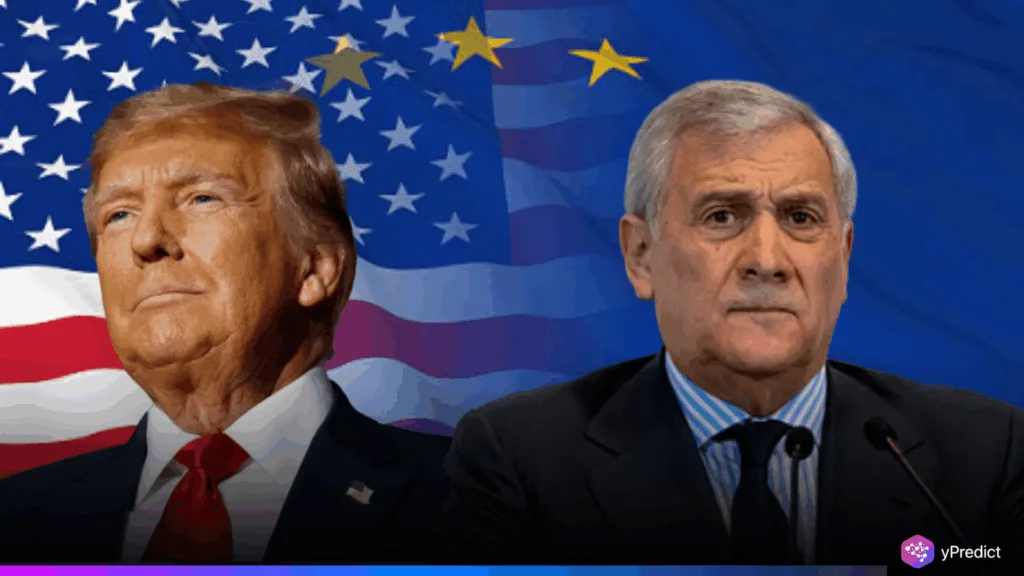
The European Union has threatened to take action with $24.5 billion if trade negotiations with the US are unsuccessful. Italian Foreign Minister Antonio Tajani presented the bloc’s trade war strategy. Additionally, he emphasized that it is prepared for possible US tariffs of 30%.
President Trump has raised concerns by threatening to impose taxes on imports from the EU and Mexico by August 1. As a result, the European Central Bank is considering new stimulus plans as tensions increase. Additionally, because markets are uncertain and the US dollar is under pressure, global markets could be greatly impacted.
EU Readies Billions in Tariffs as Trade War Tensions Rise
The EU has developed a $24.5 billion tariff list aimed at US goods. According to Tajani, if no agreement is reached, this is just the beginning. He underlined that because of the risks to savings and pensions, “tariffs hurt everyone,” particularly the US.
Trump’s most recent tariff threat of 30% comes after negotiations with important trading partners failed. If the tariff were imposed, transatlantic trade would be drastically reduced. Additionally, it could “practically eliminate trade” between the two of them, according to European Trade Commissioner Maros Sefcovic.
Germany and France have promised to work together to reduce tensions. German Chancellor Friedrich Merz and President Macron will collaborate with EU Commission chief Ursula von der Leyen. They think a more serious trade war can be avoided through diplomacy.
ECB and US Dollar Shape Market Risks
The US dollar’s response to the escalating tension has been multifaceted. Short-term dollar strength is usually a result of trade disputes. However, if a full-scale trade war starts, the gains might be undone. The euro remains vulnerable while the ECB considers new stimulus measures.
Tajani suggested that quantitative easing be resumed to stimulate the eurozone’s economy. Additionally, he suggested new interest rate reductions. These actions might further devalue the euro, which would reduce its appeal on the foreign exchange market.
Global markets have already seen brief sell-offs connected to tariff threats. Analysts caution that extended uncertainty may lead to changes in investment flows. Additionally, it might eventually impact the euro and the US dollar.
Is This the Turning Point for Global Markets?
The trade war rhetoric has reached a risky low point. The EU is ready to respond with high tariffs as the negotiations continue. Diplomacy is the hope for the time being. However, if the US moves forward, the consequences could have a significant impact on global markets. It might include investor sentiment, the euro, and the US dollar.







